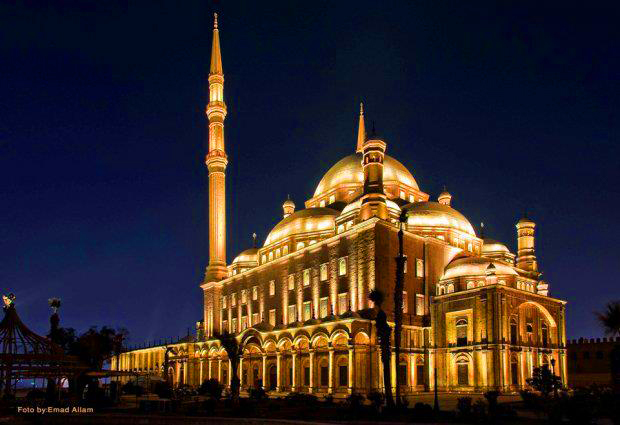Why do two or more people get into a dispute or argument?
There can be several underlying causes or reasons. It usually happens when one person unintentionally wrongs or mistreats another.
For example, when someone takes his/her anger and stress at uncontrollable circumstances in their lives out on an unsuspecting scapegoat, hurting the latter in the process.
At other times, someone who covets a blessing that they do not possess might feel envious of another who does, and this envy can come out in the form of bad treatment or caustic talk. Then there are personal traits and behaviors that cause conflicts e.g. it is a fact that arrogant and insecure people who suffer from low self-esteem habitually mistreat and demean others just to feel better about themselves.
Many a time, it might simply just be a personality clash that can cause two people to not get along, such as a high-flying city-dweller who finds it impossible to tolerate the company of an easygoing “hillbilly” kind of person who displays starkly different social etiquette and personal habits.
Disputes and disagreements arise mostly with the people we interact with regularly, such as family members, friends and colleagues.
In all cases of dispute, it is very important for the others around the two disputing people or groups, especially those in positions of authority, to wisely play the role of advocacy, pacification and moderation in order to prevent the situation from being blown out of proportion and causing a permanent straining of relations.
There is a great reward for those who facilitate reconciliation between disputing parties. Narrated Abud Darda’, the Prophet (peace be upon him) said:
“Shall I not inform you of something more excellent in degree than (voluntary) fasting, prayer and almsgiving (sadaqah)?” The people replied, “Yes, Prophet of Allah!” He said, “It is putting things right between people. Spoiling relations is the shaver.” (Abu Dawud)
Another version of this hadith in Jami’ Al-Tirmidhi adds, “It is the shaver, and I do not say that it shaves hair, but that it shaves (i.e. destroys) the Deen (i.e. religious commitment).”
Disagreements Between the Prophet’s Companions
At a time when the Muslim ummah is riddled with many kinds of trials and tribulations, one of which is disunity wrought by argumentation over matters of faith, which in many cases leads to outright physical fighting and killing, there is a dire need to highlight relevant incidents from the seerah (biography) of Prophet Muhammad where he effectively resolved disputes between conflicting parties to bring about reconciliation.
The companions and wives of Prophet Muhammad (peace be upon him) were the loftiest Muslims of our ummah in terms of righteousness and fear of Allah. Yet, they used to have disagreements that sometimes turned into disputes.
Many a time, one or both of the disputing parties would come to the Prophet complaining about the other, and he would use impartial judgment as well as Divinely-inspired wisdom to decide which one of them was wrong and needed to apologize or compensate the other.
The important thing to remember is that the Prophet was in a position of authority over them, and his decision was always the best, with absolutely no chance of being even slightly wrong.
Unfortunately, he is not with us anymore, which means that it is imperative for us average lay-Muslims today to closely analyze how he handled the situations of conflict between his companions and wives, and what he did step-by-step in order to solve them.
Dispute Between Abu Bakr and Umar
Once, the two close friends Abu Bakr and Umar had a dispute with each other. Something that Abu Bakr did had made Umar angry, and even though Abu Bakr went after him asking for forgiveness, Umar slammed the door on his face in a huff.
Abu Bakr then came to sit in the company of the Prophet and his companions including Abud Darda (the narrator), and the Prophet immediately sensed, probably from Abu Bakr’s body language and facial expression, that he was disconcerted. However, Abu Bakr remained silent, until Umar himself arrived and narrated the story of what had transpired between them to the Prophet..
When the Prophet heard the details of this dispute, he became angry. Abu Bakr immediately admitted that he was more at fault as soon as he saw the Prophet’s anger. When the Prophet saw how Abu Bakr was not just admitting that he had been more wrong, but had also sought forgiveness from Umar, he undertook a two-step strategy to encourage Umar to forgive him.
First, he called Abu Bakr his friend or companion and asked all those seated around himself, twice, whether they would “leave” for him his companion i.e. whether they would desert the one friend who had always been by his side. This automatically hints at the way Abu Bakr had proved his loyalty to Allah as a comrade and helper of the Prophet, especially during adversities.
Next, the Prophet narrated an example to everyone seated around him, of Abu Bakr’s sincerity and loyalty to the Truth, by recalling how, when he had started proclaiming his Prophethood to mankind, everyone had called him a liar at first, except Abu Bakr, who had said, “You speak the truth”.
The lesson we can derive from this narration for solving disputes, is that we should hasten to forgive the one who admits that he has wronged us, and is sincerely seeking forgiveness for it.
Reconciliation can be facilitated by making the one who has been wronged recall the past good that the one who has wronged them has done to them, especially if there is glaring evidence of that person being very truthful, sincere, Allah-fearing and righteous.
The one who is angry should not remain aloof and diffident for too long from someone who has proven himself to be fiercely loyal to Prophet Muhammad.
Dispute Between the Prophet’s Wives
What to do when the wrong-doer in the dispute does not apologize or repent?
Being fallible human beings, two of Prophet Muhammad’s wives once had a confrontation with each other in his presence. Zainab bint Jahsh entered upon the Prophet when he was with Aisha bint Abi Bakr, and started to say harsh things to Aisha.
Aisha kept quiet at first as Zainab went on. She looked repeatedly at the Prophet’s face to seek approval for retaliating to Zainab. Once she saw his approval on his face, she started to speak hot words in reply to Zainab, until Zainab was silenced. The Prophet indicated his approval of her retaliation with a smile and a verbal exclamation of her likeness to her father in oratorical ability, “She is the daughter of Abu Bakr”.
This hadith has many points from which we can learn.
First of all, the narration has been transmitted from Aisha herself, and to give her credit for being just, we should note how, before she describes her argument with Zainab, she mentions many of Zainab’s good qualities and praises her righteousness, “I have never seen a woman more advanced in religious piety than Zainab; more God-conscious, more truthful, more alive to the ties of blood, more generous and having more sense of self-sacrifice in practical life, and having more charitable disposition, and thus more close to God, the Exalted. She, however, lost her temper very soon, but was soon calm.”
This is a very important point for us to learn from this narration, because we often tend to completely overlook, ignore and undermine the positive traits of those with whom we have disagreements.
Secondly, keeping silent when an older person is being unjustly harsh towards you is not always called for. Unlike the case I highlighted above, in which the Prophet showed anger at Umar for staying angry with an apologetic and repentant Abu Bakr, in this particular case, the Prophet allowed Aisha to answer back her co-wife and defend herself.
Being in a position of authority over them both, as a husband as well as the Prophet of Allah, he allowed the much-younger Aisha to defend herself against the verbal onslaught of an older co-wife.
This was because, as is apparent from the start of the narration, he knew how much his other wives envied Aisha because of the greater love he had for her (he was very just in imparting equal treatment to them all otherwise, but his exclusively affectionate feelings for Aisha were apparent to all).
Knowing that the other wives’ hostility in this particular incident was based only on personal insecurities and envy, and not on anything wrong done by Aisha towards them, he allowed her to use her superior verbal skills to stand up for herself.
Modern Day Disputes
For any Muslim who occupies a position of authority of any kind, such as a household head, a parent, an employer of domestic staff, a manager in a corporation, or a ruling president/government official, it is very important for them to impart justice in resolving disputes between two people who are under their authority.
Many of the Muslim ummah’s disputes begin at the level of the household unit – the family. Sadly, partiality and favoritism in a person occupying a position of authority (such as a parent) towards another member of the family often results in feelings of resentment in those who are deliberately and repeatedly wronged by the latter, and are neither recompensed nor allowed to defend themselves.
Ever since my book on Muslim marriage got published, I have counseled many real-life cases involving disputes that go on behind the deceptively serene walls of most Muslim households.
In most of these cases, the causes of disputes and fighting stem from how the authority figures of the household unwittingly commit injustice upon the weaker members of their extended family, or discriminate against some of them by giving preferential treatment to others.
Like the Prophet, had the authority figures in the household done their duty of executing justice and fairness between their subordinates, and admitted their error the way the Prophet’s humble companions did, their family would have been successful in avoiding recurrent disputes, disagreements, and most of all, the distancing between hearts that were initially close. They would have been able to live closer together in harmony.
Conclusion
In the end, let us list the actions the Prophet used to do as a person in authority, when disputing parties came to him to resolve matters between them:
1. He heard complains of both sides before passing a verdict.
2. He mentioned the good traits and righteous deeds of the wrong-doer if the latter was apologetic and repentant, to facilitate reconciliation.
3. He allowed the recipient of an undeserved verbal onslaught to defend their honor, even if they were younger in age.
4. He did not – and this is a very important key point – exhort the wronged person to keep silent in the name of patience and restraint. He did not allow their oppressor to continue with their injustices. Rather, he made sure that the wrongdoing was not just stopped, but that the one who was wronged also defended themselves.
Anas ibn Malik (May Allah be pleased with him) said: The Messenger of Allah (peace be upon him) said:
“Do not desert (stop talking to) one another, do not nurse hatred towards one another, do not be jealous of one another, and become as fellow brothers and slaves of Allah. It is not lawful for a Muslim to stop talking to his brother (Muslim) for more than three days.” (Al-Bukhari and Muslim)
The post How Prophet Muhammad Resolved Disputes appeared first on About Islam.
source
https://aboutislam.net/reading-islam/living-islam/prophet-muhammad-resolved-disputes-2/






 Read Also:
Read Also: 


















